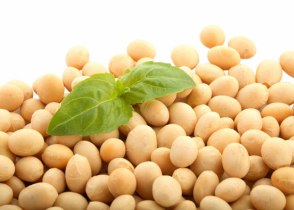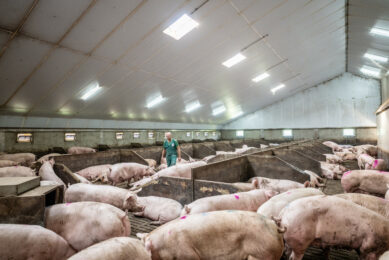Hamlet Protein studies soy protein in piglet diets

Piglet feeding trials at CCL Research in the Netherlands, commissioned by Hamlet Protein showed improved gut health when piglets received the soy protein HP 300.
The company says that its soy protein HP 300 improves weaning phase with reduced susceptibility to E. coli, improved feed intake and increased body weight gain. The study compared the effect on piglets fed a wheat-barley-corn diet supplemented with HP 300 or conventional soy bean meal. On day six and seven of the 14-day study, the piglets were challenged with E. coli K88 – a common bacteria in pig stalls and a frequent cause of diarrhoea and piglet fatalities.
Significant weight gain
Overall, the average weight gain of the piglets fed HP 300 was 28% higher than that of the group on the diet supplemented with soy bean meal, while feed intake increased just 14%, indicating a substantial improvement in feed utilisation. At this improved growth rate, piglets can be expected to reach a target weight of 30kg in 72 days. “This is around 5 days faster than the average for conventional feed”, says Lars Sangill Andersen, feed application manager at Hamlet Protein. In addition, the improved feed efficiency and lower age for reaching 30kg gives a feed saving of around 3.5kg feed per piglet.
High E. coli resistance
Faecal samples taken at regular intervals during the study period showed consistently lower faecal shedding of E. coli in the piglets on the HP 300-supplemented diet. Lars Sangill Andersen puts the finding down to the composition of HP 300, which contains none of the natural soy sugars that promote E. coli growth in the gut. “The low faecal shedding of E. coli is the direct explanation for the increased weight gain,” he comments. “This shows that the piglets were able to recover from stress more quickly – a significant benefit that saves labour, time and costs for the farmer.” The study supports the findings of an earlier study on weaned piglets where HP 300 was seen to reduce the incidence of diarrhoea.
Related website
• Hamlet Protein











